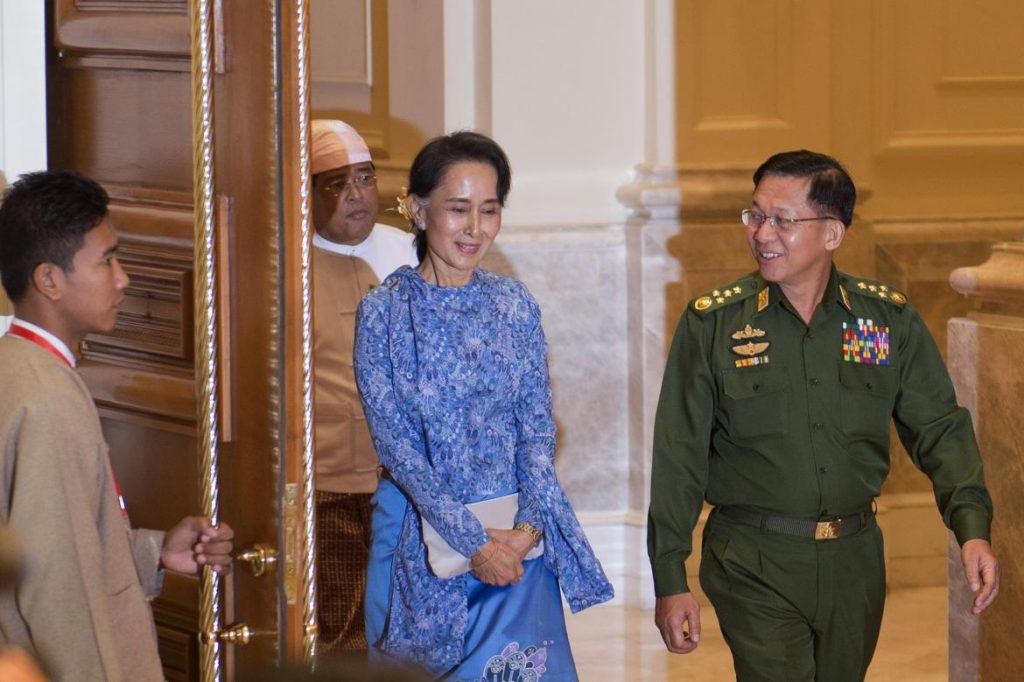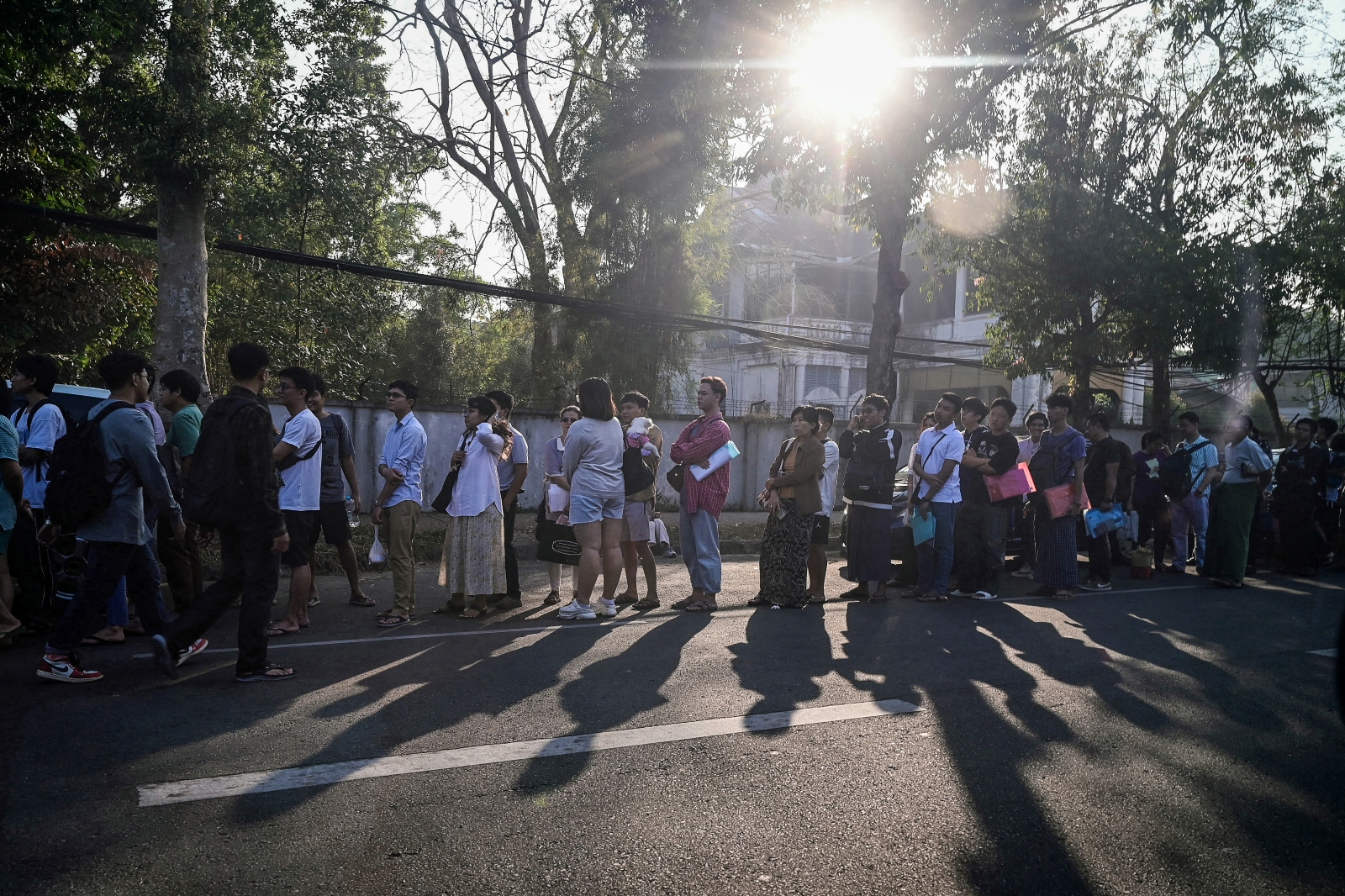The NLD government must meet three main challenges to achieve its agenda for reform and development and they all involve its relationship with the Tatmadaw.
By SITHU AUNG MYINT | FRONTIER
The historic handover of power to the National League for Democracy government headed by Daw Aung San Suu Kyi was accomplished smoothly last week.
Because of its comfortable majorities in the Pyithu Hluttaw and the Amyotha Hluttaw, the NLD has total control over the government and is able to enact any law.
However, under the 2008 Constitution, the Tatmadaw stands as a separate entity. Unelected Tamtadaw MPs hold 25 percent of the seats in parliament – giving them an effective veto over constitutional reform – and the military appoints the ministers of defence, home affairs and border affairs. Under these circumstances, will the new government be able to bring the peace and development that the country so desperately needs?
This week I would like to explore the main challenges facing the government.
Support more independent journalism like this. Sign up to be a Frontier member.
The most important objective of the new government is to create the peace and stability necessary to manage the country effectively and avoid any possibility of a situation that could lead to military intervention in the form of a coup d’etat. I must frankly say that such a scenario is possible. This is why the most important challenge confronting the NLD is to maintain good relations with the Tatmadaw and persuade it to cooperate in the reform process.
There was widespread popular concern after the election about whether the Tatmadaw would accept the result and cooperate with the NLD. The reason for the concern was that a series of former military governments had never accepted such a situation.
Another cause for concern was the failure of talks between Suu Kyi and Tatmadaw Commander-in-Chief Senior General Min Aung Hlaing to produce agreement. The Tatmadaw chief did not accept the NLD’s proposal to suspend Section 59(f) of the Constitution to allow Suu Kyi to become president, and she opposed his demand to appoint the chief ministers of Yangon Region and Kachin, Rakhine and Shan states.
There was also disagreement between NLD and Tatmadaw MPs over nominations for the presidency and the nine-member Constitutional Tribunal, the highest body to rule on disputes involving the charter. More such disagreement is likely.
Addressing a ceremony marking Armed Forces Day in Nay Pyi Taw on March 27, Sen-Gen Min Aung Hlaing said there were two main obstacles to the democritisation process. One was a weakness in adhering to rules and regulations and the other was the armed insurgency, he said, warning they could lead to a “chaotic democracy”.
If there is a change for the worse and Myanmar changes course, it will be because senior Tatmadaw officers have never had the experience of working with a civilian government and wealthy former generals and their cronies are uncomfortable with the present situation.
In such circumstances, it is imperative for the NLD to maintain friendly relations with the Tatmadaw and implement a firm policy of national reconciliation. If the NLD cannot enjoy good relations with the Tatmadaw it will not be able to work for the benefit of the country and the people.
The next challenge is to develop the economy and the nation and ensure that the benefits reach the millions of citizens at grassroots level. International experience shows that successful reform governments have raised the living standards of most of their people. If economic growth does not benefit the grassroots there will be a risk of instability that could be exploited by those who want to reverse the course of reform.
The third challenge is building peace and ending armed conflict. An absence of peace will pose difficulties for economic development. Achieving peace will require the NLD and Suu Kyi to work with the Tatmadaw and ethnic groups. It will not be easy to negotiate a way out of the quagmire of 70 years of civil conflict that involves issues ranging from sharing natural resources to self-interest. A failure to meet this challenge could also result in a reversal of course.
As the NLD settles in to the responsibility of government it faces a host of challenges, of which the three outlined above are the most important and must be addressed.







